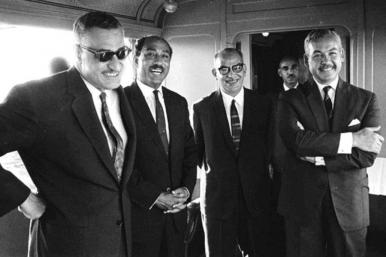
Never miss a breaking event on U.S. policy interests in the Middle East. Customize your subscription to our expert analysis, op-eds, live events, and special reports.
The Washington Institute has recently been sponsoring a series of discussions about sudden succession in the Middle East. Each session focuses on scenarios that might unfold if a specific ruler or leader departed the scene tomorrow. Questions include these: Would the sudden change lead to different policies? Would it affect the stability of the respective countries involved, or the region as a whole? What would be the impact on U.S. interests? Would the manner of a leader's departure make a difference? The discussions also probe how the U.S. government might adjust to the new situation or influence outcomes.
Never miss a breaking event on U.S. policy interests in the Middle East. Customize your subscription to our expert analysis, op-eds, live events, and special reports.